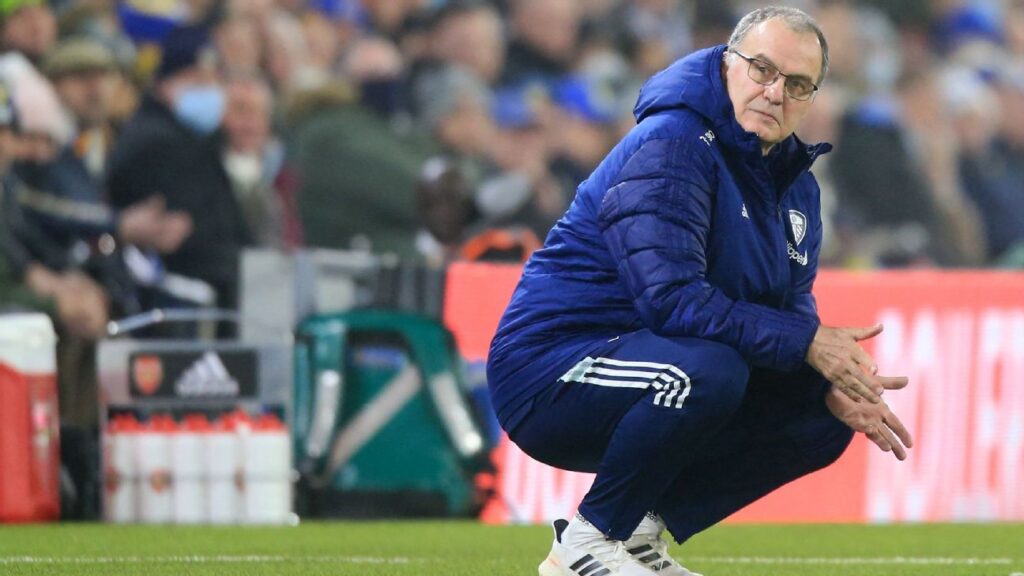Football’s pied piper is back in business, ready to enchant his next group of young players and lead them forward, always forward — Marcelo Bielsa has been named Uruguay’s new coach through the 2026 World Cup.
It means that an astonishing seven of CONMEBOL’s 10 nations are now coached by an Argentine — including Chile’s onetime Bielsa assistant Eduardo Berizzo. Brazil, still without a coach, will remain an obvious exception. The other two — Ecuador and Peru — were entirely recently coached successfully by Argentines. Indeed, after the respective resignations of Gustavo Alfaro and Ricardo Gareca, both of these countries were rumoured to be interested in hiring Bielsa.
But the 67-year-old has long felt an affinity with Uruguay — its high cultural level, its gentility off the field and its commitment to the cause on the pitch — and once they came knocking he was open to the idea. It is a place where he feels at home. This is not a job where a translator will be necessary. The nuances of Bielsa’s florid, idiosyncratic Spanish will easily be understood.
Premier League fans will mainly know Bielsa from his time with Leeds United — and may recall his spell in Spain with Athletic Club. He was reportedly in negotiation to take the Everton job. But it is certainly arguable that his best work — and where he really made his name — was with South American national teams.
He was not a particularly well-known figure when he took charge of Argentina in 1998. True, the most important moment, the 2002 World Cup, was a resounding flop. But his team were outstanding in qualification, sweeping all before them. Come the tournament, like most of the favourites, Argentina were simply not fresh enough to give their best — a massive problem in a style of play dependent on dynamism. But Bielsa stepped down on a high, soon after winning the gold medal at the 2004 Olympics in Athens.
His four-year spell with Chile (2007-2011) was probably even more impressive. He took over a group of highly promising youngsters — Chile had reached the semifinals of the 2007 Under-20 World Cup — who were ambitious and keen to learn. Chilean football had lacked a historical identity, but it was ideal spot for Bielsa to implement his ideas of high-intensity, high-pressing, high-line, proactive football.
Chile were the neutrals’ favourites in the 2010 World Cup, and by reaching the second round they enjoyed their best tournament with the exception of 1962, which they hosted. As successor and self-confessed Bielsa disciple Jorge Sampaoli acknowledged, it was Bielsa who laid the foundations for Chile’s first ever silverware, the Copa America triumph of 2015.
There are certain similarities with the situation in which Uruguay currently find themselves. The reboot carried out in the epic reign of Oscar Washington Tabarez (coach from 2006-2021) brought Uruguay back to football’s top table. A group of players who came all the way through the Tabarez years and the short tenure of Diego Alonso are now preparing to leave the scene after four straight World Cup appearances. And the emphasis placed by Tabarez on the Under-20 side means that there is a conveyor belt of talent — in extraordinary numbers for a country with a population of just 3 million — ready to replace them.
Bielsa, then, has plenty of talent to work with. Some might think that Bielsa and Uruguay is a strange fit, that La Celeste would rather take refuge in blanket defence than follow Bielsa’s attacking lead. This is part truth, part stereotype. In 2003, Juan Ramon Carrasco had a brief but fascinating ultra-attacking spell in charge, and a lesson from the Tabarez years is that the team is capable of tactical flexibility.
As so often with Bielsa, the test is the response after the negative result which is always a possibility in such a high risk model of play. But it is not hard to imagine him constructing a team around the midfield dynamism of Real Madrid’s Federico Valverde, with Liverpool’s Darwin Nunez ahead of him and Barcelona’s Ronald Araujo patrolling the backline.
And he will have a long, hard look at the coming generation. Bielsa is keen to take charge of the Under-23s for qualification for the 2024 Olympics in Paris, which is an important tournament for Uruguay.
The start of the modern age of football can almost certainly be dated from the 1924 Games, when the little known South Americans astonished all comers on their way to the gold medal. When Uruguay repeated as gold medalists in 1928, the idea of a worldwide football tournament became necessary and inevitable.
Uruguay give the same weight to those two gold medals as to their World Cup titles — the inaugural 1930 tournament as hosts over Argentina and their historic upset over favourites Brazil in 1950 — which is all symbolised by their four stars on the crest.
Next year in Paris will be the centenary of that first gold medal, back in the same city where history was made. Coaching the team hoping to win a place is a big responsibility — and it is also a chance for Bielsa to sift through the youngsters and fast track some of them into the senior squad.
And so the pied piper stands ready to play his favourite tune, in the hope of leading Uruguay on a merry dance all the way from the southern cone, via Paris, and possibly glory at the 2026 World Cup.




